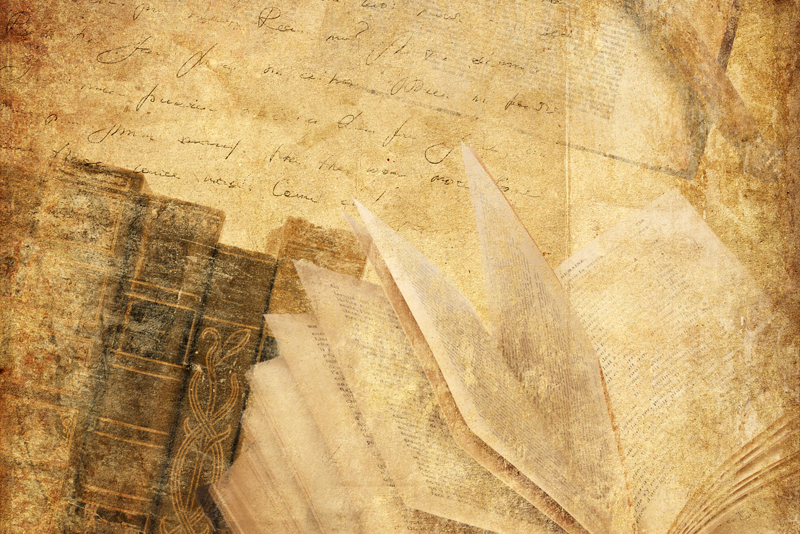Canadian Literature

What classifies literature as Canadian? Is Canadian literature a sub-genre on its own, or is it called Canadian literature because it's written by Canadian authors?
Canadian literature is indeed a sub-genre in literature that is focused on Canadian life, its culture, or rather, its multiculturalism, and the issues that plague the Canadian society as a whole. It isn't tagged Canadian literature simply because it's written by Canadian authors; rather, it's about the themes surrounding the works. These themes include, but are not limited to, seeking self and national identity, fear of failure and emptiness, emerging with a true sense of self, among others.
There is a term called the 'garrison mentality' (first formulated by Northrop Frye, a Canadian literary critic), which is believed to be very much prevalent in Canadian works. This term was stemmed from the 'fear of oppression' that Canadians feel against America, i.e. the fear of being ruled over, thus the term refers to a wall or barrier that Canadians, or characters in a work setting, build up against the world, for fear of being overshadowed. Margaret Atwood explores this concept in her non-fiction book about Canadian literature titled Survival: A Thematic Guide to Canadian Literature.
The following are a few, among many, of Canadian literary authors whose great works we've come to recognize and appreciate over the years:
Lucy Maud Montgomery. Author of bestselling novel Anne of Green Gables (1908), the first of many series featuring Anne, the the red-headed orphan girl who's come to be so loved by readers of all ages. Montgomery is also author of various other novels, short stories and poetry collections.
Suzanna Moodie. She wrote various novels, poetry, and children's books, but she's best known for her outstanding work in Roughing It In The Bush, the first of three books that consists of a non-fictional account of her settlement in rural Canada coming from a privileged family in London during the 1830s. These memoirs give detailed narrations of all the hardships, trials, and conquests that Moodie goes through as a newly emigrated citizen.
Margaret Atwood. She's the queen of Canadian literature and widely known for her powerfully-themed novels and poetry collections that focus on the theme of women and victimization, expression of national identity, among a wide range of other themes. Atwood herself believes that Canadian literature is made up of the search for a national identity and the question of where the Canadian nation stands in the world. Her novels include Alias Grace, The Handmaid's tale, Cat's Eye, The Blind Assassin, Surfacing; her non-fiction works include Survival: A Thematic Guide to Canadian Literature, and The Journals of Susanna Moodie. She was very much inspired by Suzana Moodie's writing, and made mention of several passages of Roughing It In The Bush in her novel Alias Grace.
Alice Munro. Many of Alice Munro's works have a regional emphasis in the way she focuses on customs and traditions of the particular region in question. A few of them are also about the coming of age and the quest for self and identity. She is the captain of Canadian short stories, and it's outstanding how much literary depth and complexity she puts in these short stories, such depth that is most times only experienced in full-length novels. Her short story collections include Friend of My Youth; The Love of a Good Woman; Hateship, Friendship, Courtship, Loveship, Marriage; Runaway, among others.
More Canadian authors include Michael Ondaatje, best known for his most popular work Coming through Slaughter, and author of other novels that include The English Patient, and In the Skin of a Lion; Timothy Findley, best known for Pilgrim, and other works that include The Butterfly Plague; Nalo Hopkinson, author of The New Moon's Arms, and Brown Girl In The Ring; Yann Martel, author of Life of Pi; and Robertson Davies, author of Fifth Business (Book 1 of the Deptford Trilogy).
More on Canadian literature will be discussed as we explore the themes mentioned above, to delve into the minds of these brilliant authors (and some others not mentioned) in the effort to unravel what they aspire to share with readers all over the world. Canadian literature is a part of literature that is most certainly worth exploring and adopting into one's literary collections!
Our hopes are high. Our faith in the people is great. Our courage is strong. And our dreams for this beautiful country [Canada] will never die.
Canadian literature is indeed a sub-genre in literature that is focused on Canadian life, its culture, or rather, its multiculturalism, and the issues that plague the Canadian society as a whole. It isn't tagged Canadian literature simply because it's written by Canadian authors; rather, it's about the themes surrounding the works. These themes include, but are not limited to, seeking self and national identity, fear of failure and emptiness, emerging with a true sense of self, among others.
There is a term called the 'garrison mentality' (first formulated by Northrop Frye, a Canadian literary critic), which is believed to be very much prevalent in Canadian works. This term was stemmed from the 'fear of oppression' that Canadians feel against America, i.e. the fear of being ruled over, thus the term refers to a wall or barrier that Canadians, or characters in a work setting, build up against the world, for fear of being overshadowed. Margaret Atwood explores this concept in her non-fiction book about Canadian literature titled Survival: A Thematic Guide to Canadian Literature.
The following are a few, among many, of Canadian literary authors whose great works we've come to recognize and appreciate over the years:
Lucy Maud Montgomery. Author of bestselling novel Anne of Green Gables (1908), the first of many series featuring Anne, the the red-headed orphan girl who's come to be so loved by readers of all ages. Montgomery is also author of various other novels, short stories and poetry collections.
Suzanna Moodie. She wrote various novels, poetry, and children's books, but she's best known for her outstanding work in Roughing It In The Bush, the first of three books that consists of a non-fictional account of her settlement in rural Canada coming from a privileged family in London during the 1830s. These memoirs give detailed narrations of all the hardships, trials, and conquests that Moodie goes through as a newly emigrated citizen.
Margaret Atwood. She's the queen of Canadian literature and widely known for her powerfully-themed novels and poetry collections that focus on the theme of women and victimization, expression of national identity, among a wide range of other themes. Atwood herself believes that Canadian literature is made up of the search for a national identity and the question of where the Canadian nation stands in the world. Her novels include Alias Grace, The Handmaid's tale, Cat's Eye, The Blind Assassin, Surfacing; her non-fiction works include Survival: A Thematic Guide to Canadian Literature, and The Journals of Susanna Moodie. She was very much inspired by Suzana Moodie's writing, and made mention of several passages of Roughing It In The Bush in her novel Alias Grace.
Alice Munro. Many of Alice Munro's works have a regional emphasis in the way she focuses on customs and traditions of the particular region in question. A few of them are also about the coming of age and the quest for self and identity. She is the captain of Canadian short stories, and it's outstanding how much literary depth and complexity she puts in these short stories, such depth that is most times only experienced in full-length novels. Her short story collections include Friend of My Youth; The Love of a Good Woman; Hateship, Friendship, Courtship, Loveship, Marriage; Runaway, among others.
More Canadian authors include Michael Ondaatje, best known for his most popular work Coming through Slaughter, and author of other novels that include The English Patient, and In the Skin of a Lion; Timothy Findley, best known for Pilgrim, and other works that include The Butterfly Plague; Nalo Hopkinson, author of The New Moon's Arms, and Brown Girl In The Ring; Yann Martel, author of Life of Pi; and Robertson Davies, author of Fifth Business (Book 1 of the Deptford Trilogy).
More on Canadian literature will be discussed as we explore the themes mentioned above, to delve into the minds of these brilliant authors (and some others not mentioned) in the effort to unravel what they aspire to share with readers all over the world. Canadian literature is a part of literature that is most certainly worth exploring and adopting into one's literary collections!
Our hopes are high. Our faith in the people is great. Our courage is strong. And our dreams for this beautiful country [Canada] will never die.
-- Pierre Trudeau

Related Articles
Editor's Picks Articles
Top Ten Articles
Previous Features
Site Map
Content copyright © 2023 by Ije Yvonne. All rights reserved.
This content was written by Ije Yvonne. If you wish to use this content in any manner, you need written permission. Contact Yvonne Ije for details.







